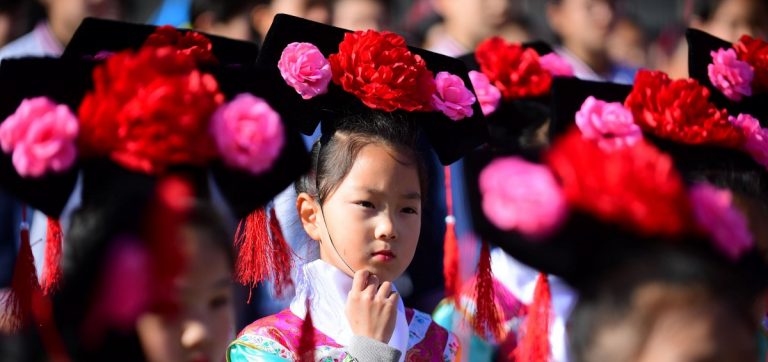
The number of Chinese students who want to attend US colleges and universities is on the rise – a surprising outcome, given the impact the election of Donald Trump as president has had on the country’s higher education sector, a report by Vision Overseas Consulting Co (VOC) and Kantar Millward Brown reveals.
Half the number of Chinese students who plan to study abroad, or their parents, say the US remains their top choice, up from 46 percent last year – a result that defends the country’s position for the third year running in the annual Report on Chinese Students’ Overseas Study.
“We have noticed the influence of Trump’s policy and conducted an internal survey of our clients months ago,” VOC executive president Sun Tao told CCTV.
“We did feel the concerns and worries of parents, but many of them stick to their choices in the US.”

The top 5 destinations for overseas study for Chinese students are the US, UK, Australia, Canada and Germany. Source: Reuters.
The report, which was released on Tuesday, surveyed 6,217 students from more than 40 cities in February and March.
Chinese students felt the same about the UK, despite the country’s vote to leave the European Union. The UK remains the second most-popular study destination, a position it has held for three years in the annual report.
Previous surveys conducted on the impact of the political upheavals in the two favourite study destinations on prospective international students have painted a less rosy picture.
In January, Red Brick Research’s survey results found Trump and Brexit had made their respective countries a less desirable place to study in. A Hobsons’ survey a few months later, however, found subsequent measures to counter these adverse effects and to make the UK more welcoming have paid off.
Education level, overall national power and national culture remain as the key determinants for Chinese students when deciding which country to study.
More than half (51 percent) are unperturbed by international political events, with only seven percent saying they would allow these events to change their choice of overseas study destination, according to Sun.

Chinese students are the biggest cohort of international students in the US. Source: Reuters.
And while these students are very much attracted to these countries for their study, the survey also found more and more do not want to remain there after graduating.
Almost three-quarters (73 percent) plan to return to work in China after graduation, up from only 57 percent last year.
“More students than before go overseas to broaden their vision and enrich their experiences, and intend to return home,” VOC deputy head Yu Zhongqiu said.
This may bode well with the current development of immigration policies in the US, where it is now more difficult for immigrants to stay and work,Yu said.
While the proposed US restrictions have now been temporarily halted, Yu said the US will “raise the threshold” to be passed if one plans to stay.
Yu said the proposed restrictions require immigration applicants to have an annual income of no less than US$110,000 – a figure “quite difficult for new graduates to meet”.
Liked this? Then you’ll love these..
US university lends hand to international students affected by #MuslimBan
In response to #MuslimBan, Jewish university declares itself a ‘Sanctuary Campus’







